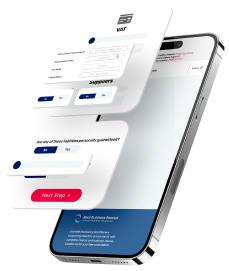
Understand your company's position and learn more about the options available
Require Immediate Support? Free Director Helpline: 0800 644 6080
Free Director Helpline: 0800 644 6080
Published:
Charities aren’t completely exempt from tax, but in general they do pay reduced tax compared with other types of organisation. Charity tax is a complex area, but in certain circumstances charities can benefit from a number of tax reliefs and exemptions in the UK.
So how do charities become eligible for tax exemptions and reliefs?


Get an instant understanding of your:
Plus much more ...
Start The 60 Second Test
Initially, it’s important for a charity to be officially recognised by HM Revenue and Customs. The charity needs to be formally registered as a charitable organisation with the Charity Commission in England and Wales, the Charity Commission for Northern Ireland, or the Scottish Charity Regulator.
To be eligible for beneficial tax treatment the charity must also be based in the UK, Norway, Iceland, or Liechtenstein, be managed by ‘fit and proper persons,’ and operate only for charitable purposes.
These include but are not limited to:
UK’s number one for director advice
We handle more corporate insolvency appointments than any other UK firm; demonstrating our commitment to helping directors and business owners in financial distress.
The team are available now - 0800 644 6080
If the above prerequisites are met, a charity may be able to access various tax reliefs, including:
Trading profits
When a charity sells goods or services, they may be deemed as trading profits depending on such issues as the regularity of sales and the type of goods and services provided. If the charity is making this profit with the aim of achieving the charity’s main objectives – known as primary purpose trading – it may not be subject to taxation.
The charity’s ‘governing document’ sets out its primary purpose, so if profits are derived from other trading activities unconnected to the charity’s primary reason for being, they may be subject to tax if they exceed the small trading tax exemption limit.
Can’t pay CBILS or Bounce Back Loan?
Don't worry - there are thousands of other company directors in the same position. If you are struggling to keep up with your Covid loan repayments, speak to a member of the Real Business Rescue team to discuss your options. It's Free & Confidential.
The team are available now - 0800 644 6080
Other tax reliefs
Tax exemptions and reliefs can also apply to charitable donations, investment income, and rentals, any profits generated from the sale or disposal of an asset, and the purchase of a property. The Gift Aid scheme enables charities to recover the tax on donations if they’re made by an individual taxpayer rather than a business.
It’s advisable for those in charge of running a charity to seek professional accountancy advice on tax – preferably an accountant who specialises in charity taxation - to make sure the charity is complying with charitable tax laws and isn’t at risk of incurring penalties by HMRC.
If your company is struggling with unmanageable debts, squeezed cash flow, or an uncertain future, you are far from alone. We speak to company directors just like you every single day, and we are here to give you the help and advice you need.
Call our team today on 0800 644 6080
Charities can obtain VAT relief in some instances, but must prove their charitable status to the supplier and provide them with a written declaration of their eligibility. When charities register with the Charity Commission they’re provided with a registration number, which can be used as proof of status.
Some purchases are zero rated for VAT, including but not limited to:
Still unsure whether liquidation is right for your company? Don't worry, the experts at Real Business Rescue are here to help. Our licensed insolvency practitioners will take the time to understand the problems your company is facing before recommending the best course of action going forward based on your own unique circumstances.

Complete the below to get in touch
For Ltd Company Directors
Get An Instant Understanding Of Your:
Plus much more ...
We provide free confidential advice with absolutely no obligation.
Our expert and non-judgemental team are ready to assist directors and stakeholders today.

Understand your company's position and learn more about the options available

Find your nearest office - we have more than 100 across the UK. Remote Video Meetings are also available.

Free, confidential, and trusted advice for company directors across the UK.